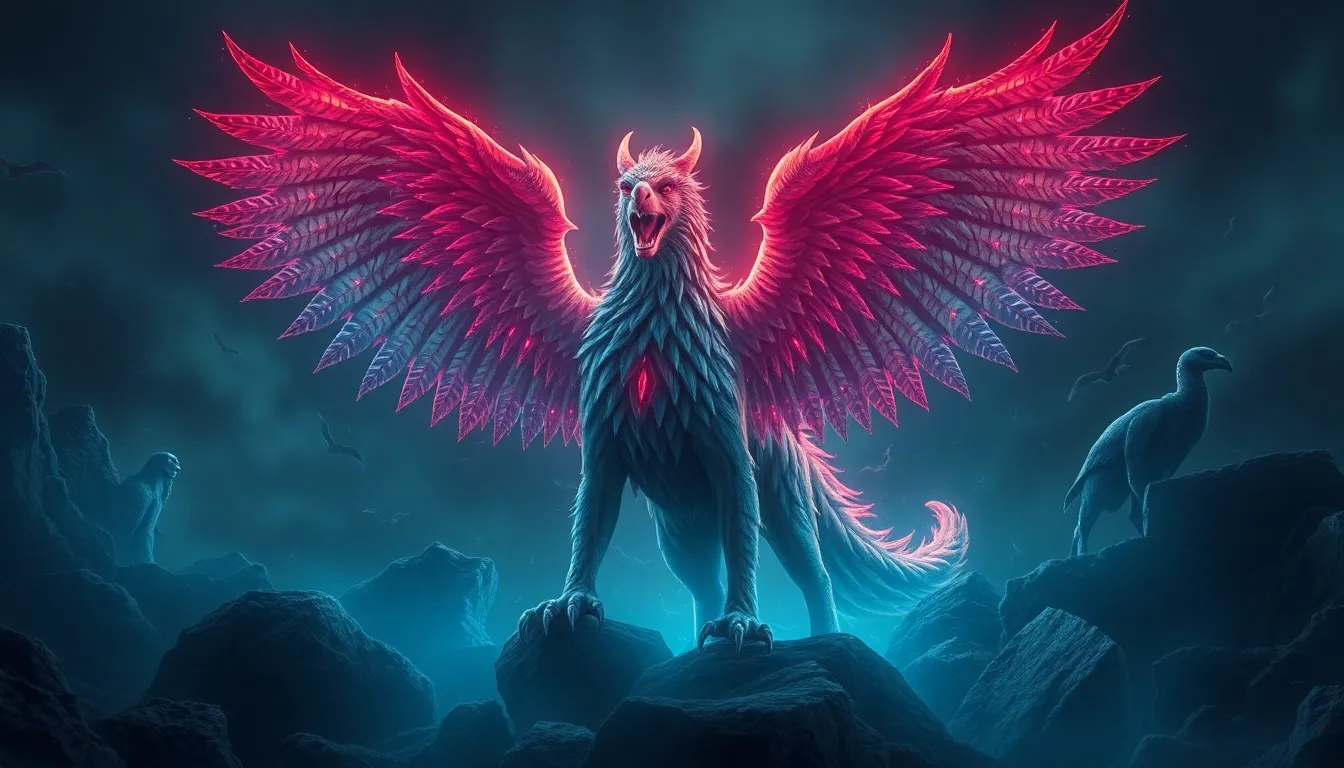The Tengu’s Language: Investigating the Linguistic Features of the Mountain Spirit
1. Introduction to Tengu: The Mythical Mountain Spirit
Tengu are legendary creatures found in Japanese folklore, often depicted as part human and part bird. Traditionally, they inhabit mountainous regions and are known as protectors of the mountains. Tengu are complex beings, embodying both benevolence and malevolence, and their portrayal has evolved throughout history. They are revered as spiritual guardians and also feared as tricksters who can lead travelers astray.
The significance of Tengu extends beyond mere myth; they symbolize the intersection of nature and the supernatural in Japanese culture. Their presence in art, literature, and religious practices highlights their importance in both cultural and spiritual contexts, making them a fascinating subject for linguistic exploration.
2. Historical Context of Tengu Linguistics
The mythology surrounding Tengu has evolved significantly over the centuries, influencing their linguistic representation. Early texts from the Heian period (794-1185) reference Tengu, often portraying them as wise beings with the ability to communicate in human language. Over time, Tengu were associated with the ascetic practices of mountain monks, further enriching their linguistic character.
Literature from the medieval period, such as the “Konjaku Monogatari” (Tales of Times Now Past), includes anecdotes of Tengu engaging in dialogue with humans, showcasing their linguistic abilities. These early references highlight not only the Tengu’s role in folklore but also the development of a unique linguistic identity shaped by cultural narratives.
3. Phonetic Characteristics of Tengu Language
The phonetic features of the Tengu language are marked by unique sounds and phonemes that distinguish it from conventional Japanese. Tengu speech often includes:
- High-pitched calls resembling bird songs
- Whispered tones that evoke a sense of mystery
- Rapid, rhythmic patterns that mimic natural sounds
When compared to regional dialects, Tengu language exhibits distinct phonetic characteristics that highlight its mythical nature. For instance, while the Kansai dialect incorporates softer tones, Tengu speech is often sharper and more abrupt, reflecting their embodiment of the wild and untamed aspects of nature. Additionally, comparisons with other mythological languages, such as that of the yokai, reveal unique phonetic traits that contribute to the overall mystique of Tengu communication.
4. Syntax and Grammar of Tengu Communication
The syntax of Tengu communication is intriguing, often diverging from standard Japanese sentence structure. Tengu sentences typically follow an unusual word order, which can be characterized by:
- Subject-Object-Verb (SOV) constructions
- Frequent use of ellipsis, omitting parts of the sentence for brevity
- Inversion of modifiers for emphasis
This syntactic structure may reflect the Tengu’s connection to the spiritual realm, where traditional grammatical rules do not always apply. Furthermore, Tengu language has been influenced by traditional Japanese, adopting certain grammatical elements while maintaining its unique identity, which showcases how mythology and language can intermingle.
5. Lexicon and Semantic Features
The lexicon of Tengu language is rich with key vocabulary that encapsulates their essence. Words associated with Tengu often include:
- Tengu (天狗) – The creature itself, representing both the physical and spiritual aspects.
- Yamabushi (山伏) – Ascetic mountain practitioners closely associated with Tengu.
- Kuzunoha (葛の葉) – Symbolic of transformation and the Tengu’s shapeshifting abilities.
Moreover, Tengu language is replete with symbolic expressions and metaphors that convey deeper meanings. For example, the phrase “like a Tengu in the mountains” may denote someone who is elusive or difficult to understand. Such semantic features not only enrich the language but also reinforce the Tengu’s role as intermediaries between the human and spirit worlds.
6. Cultural Significance of Tengu Language
The role of language in Tengu-related rituals and folklore is significant. Tengu are often invoked in traditional ceremonies, where specific chants or phrases are used to summon their protection or guidance. In these contexts, Tengu language serves as a means of cultural expression and preservation, linking the present to ancient beliefs.
Furthermore, Tengu language acts as a cultural identity marker for communities that revere these mountain spirits. The unique linguistic features associated with Tengu foster a sense of belonging among practitioners of related spiritual practices, reinforcing community ties and shared heritage.
7. Modern Interpretations and Adaptations
In contemporary times, Tengu language has been adapted and reinterpreted across various media, including literature, anime, and video games. Modern portrayals often play with traditional linguistic elements while infusing them with new artistic interpretations. For example:
- In anime, Tengu are often depicted speaking in playful, exaggerated tones, reflecting their trickster nature.
- Video games may incorporate Tengu language as a mystical means of communication, enhancing gameplay experiences.
This blending of traditional and modern elements allows for a renewed appreciation of Tengu language, influencing modern Japanese pop culture and engaging new audiences with ancient myths.
8. Conclusion: The Enduring Legacy of Tengu Language
The linguistic features of Tengu communication reveal a rich tapestry of cultural history and mythological significance. From unique phonetic characteristics to distinct syntax and lexicon, Tengu language embodies the spirit of the mountains and the complexities of human interactions with the supernatural.
As we reflect on the importance of preserving mythological languages in contemporary society, it becomes clear that Tengu language is more than mere words; it is a living legacy that connects us to our past, enriching our cultural narrative and fostering a deeper understanding of the spiritual world.




